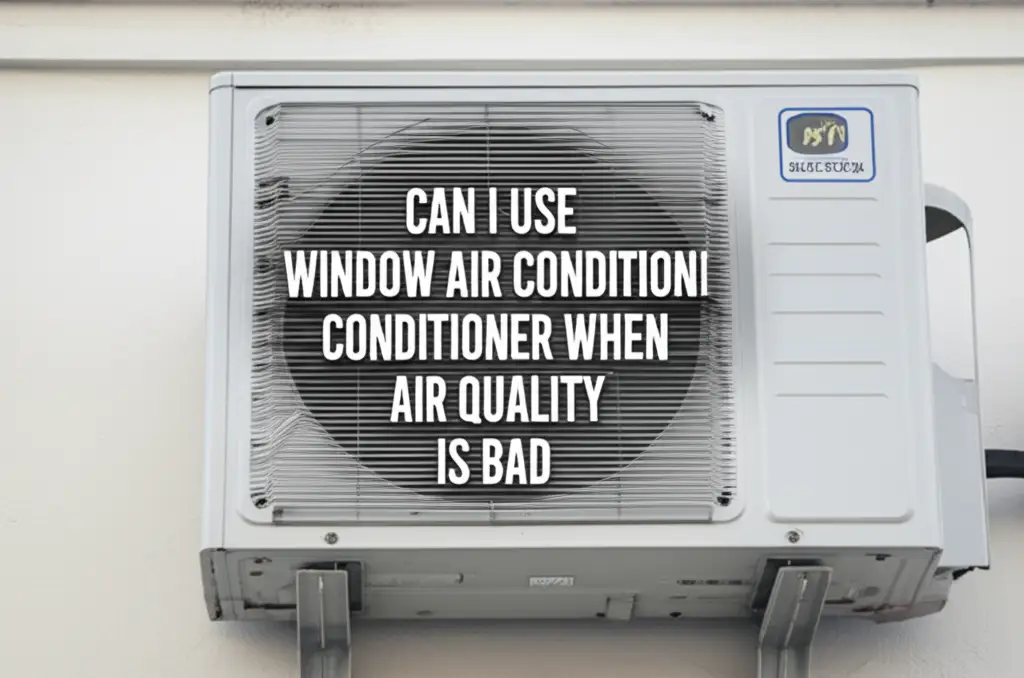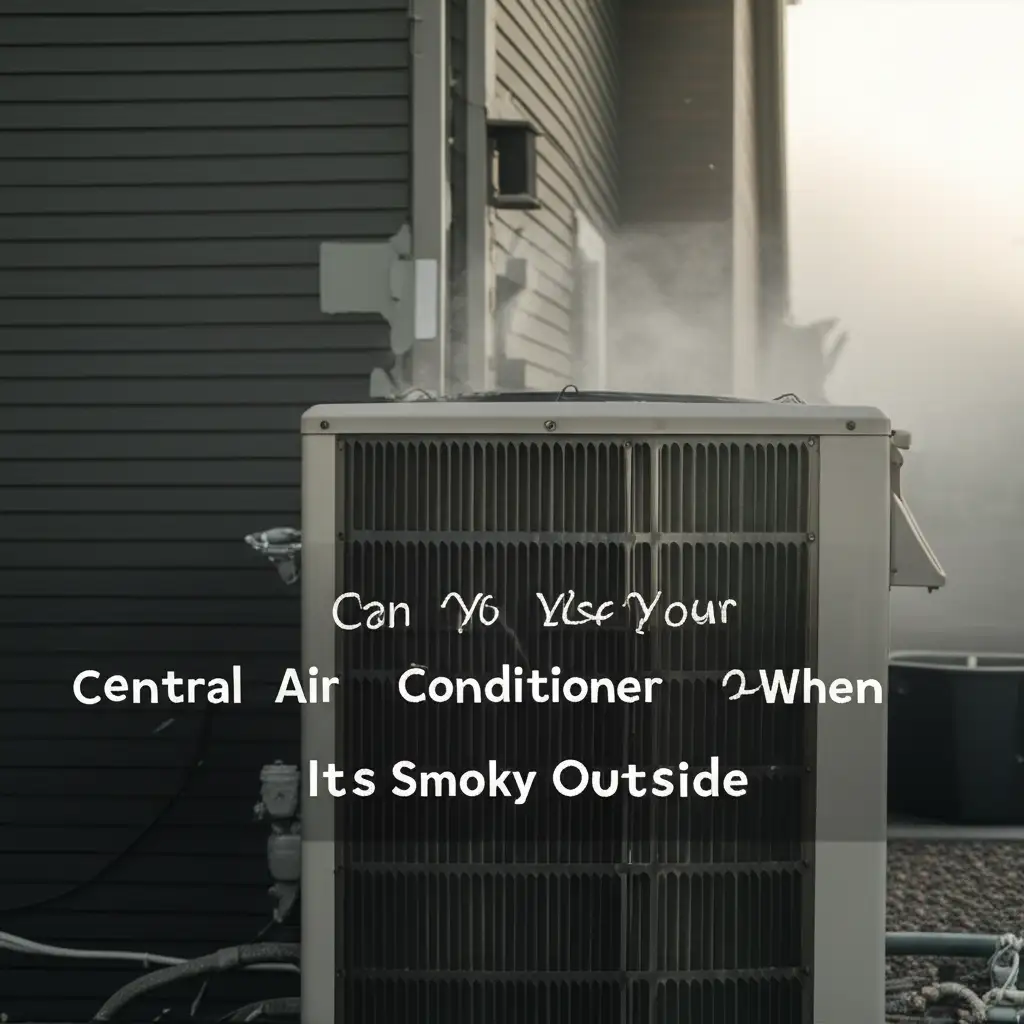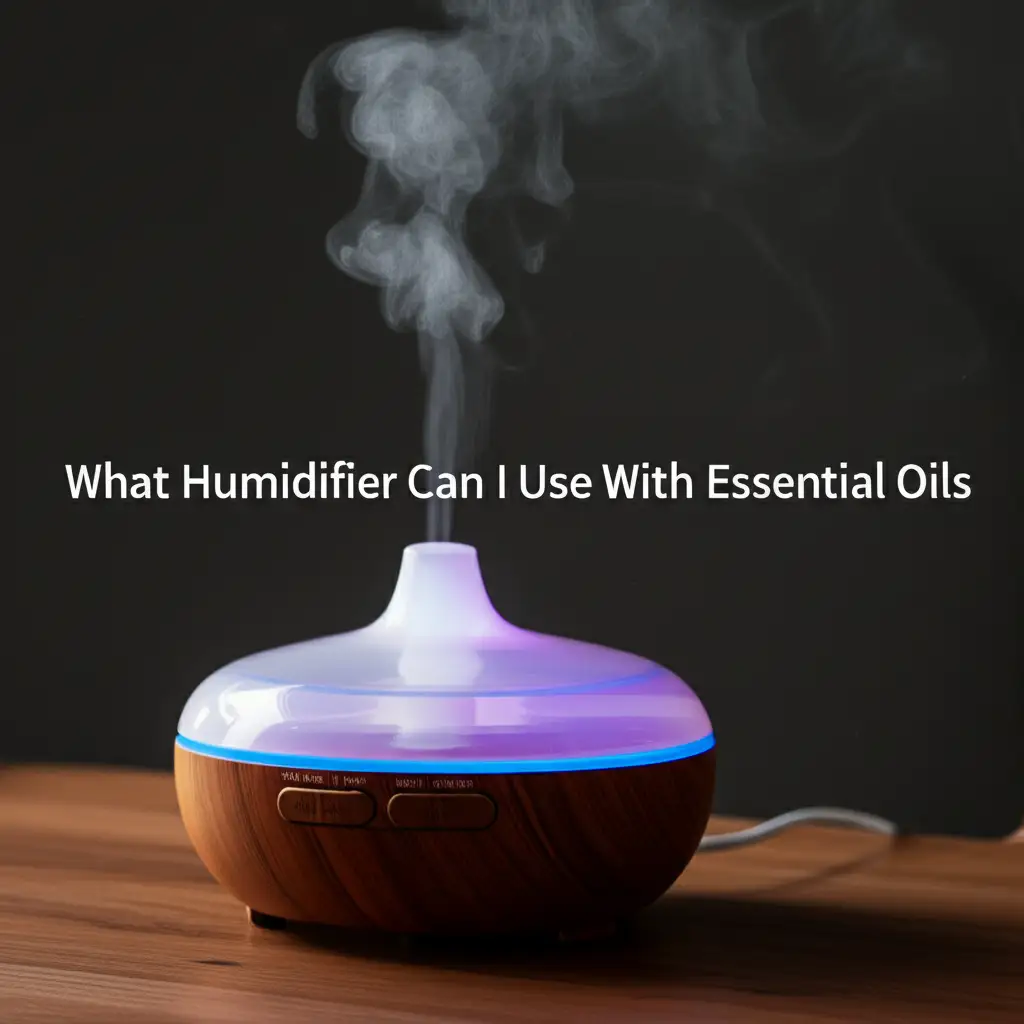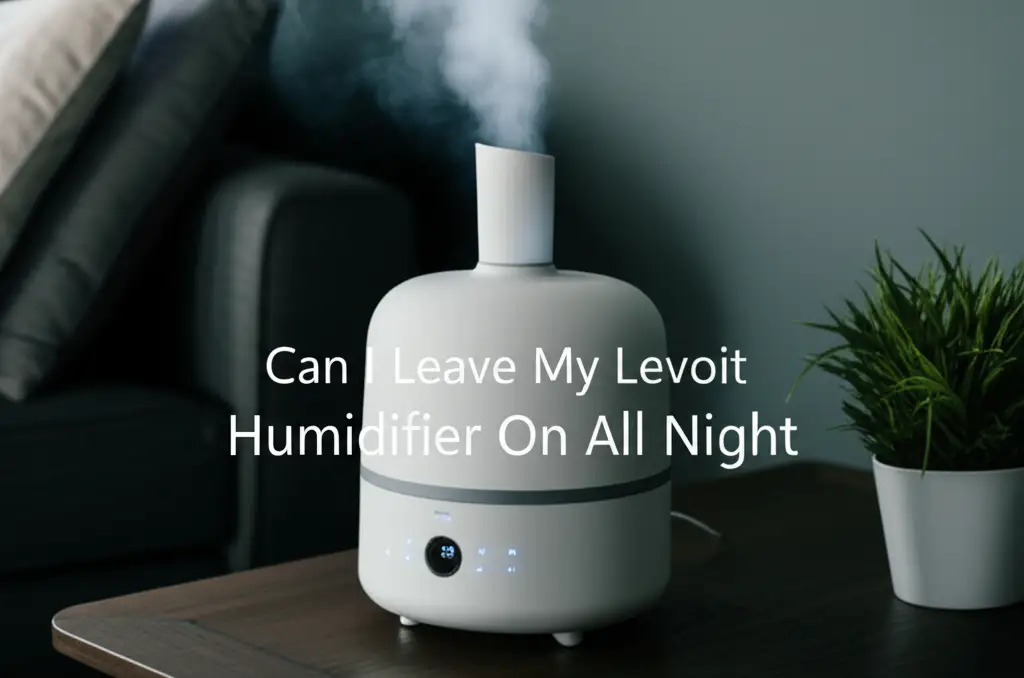· Katria Melrose · Home Comfort · 11 min read
Can I Use Window Air Conditioner When Air Quality Is Bad

Using Your Window Air Conditioner During Poor Air Quality
Summer heat can be intense. We all rely on our window air conditioners to keep our homes cool and comfortable. But what happens when the air outside turns unhealthy? Many areas now face challenges like wildfire smoke, high pollen counts, or urban smog. This makes us think about our indoor air. Can I use my window air conditioner when air quality is bad? This is a very common question.
This article will help you understand how your window AC unit impacts indoor air quality. We will explore its natural limitations. We will also discuss methods to improve your unit’s performance. You will learn about essential maintenance steps. We will also cover other important strategies to keep your home’s air clean. I want you to feel confident making choices for your home’s air.
Takeaway
When outdoor air quality is bad, using your window air conditioner needs careful thought.
- Standard window ACs primarily cool; they do not filter fine particles effectively.
- Avoid using the “fresh air” or “vent” setting to prevent drawing in pollutants.
- Keep windows and doors sealed tightly.
- Clean or replace your AC filter regularly.
- Consider adding a high-efficiency filter material if possible, but monitor your unit.
- Use a standalone HEPA air purifier for better indoor air quality.
Can I use a window air conditioner when air quality is bad?
Yes, you can use your window air conditioner when air quality is bad, but with important considerations. A standard window AC mainly cools and recirculates indoor air. It offers limited filtration against fine outdoor pollutants like smoke or smog. You must avoid using its “fresh air” vent during these times to prevent pulling in outside contaminants.
How Your Window AC Unit Handles Outdoor Air
I often think about how my window AC unit works. Most window air conditioners are designed to cool your room. They do this by drawing in warm indoor air, cooling it, and then blowing the cool air back into the room. This process helps your home feel comfortable. The unit largely recirculates the air already inside your house.
However, many window AC units also have a small vent. This vent allows a tiny amount of outdoor air to enter. This feature is often called a “fresh air” vent or a “ventilation” setting. Its purpose is to bring in some outdoor air for improved circulation. This is usually helpful on days with good outdoor air quality.
The filters in standard window AC units are basic. They primarily catch large dust particles, pet hair, and debris. This keeps the internal components of the AC clean. These filters are not designed to remove very small particles. They do not stop smoke, fine dust, or microscopic allergens effectively. This means that if outdoor air quality is poor, these small pollutants can still enter your home through the unit’s normal operation or its fresh air vent. Regular cleaning of this filter is very important. You can learn more about how to clean your air conditioner filter to keep your unit running well and help with basic air quality.
Understanding Bad Air Quality and Its Sources
Bad air quality refers to levels of pollutants in the air that can harm human health. These pollutants come from many sources. Wildfires are a significant source of smoke, which contains fine particulate matter. Car exhaust and industrial emissions create smog. Pollen from plants is a common allergen, especially during certain seasons.
The most concerning pollutant is often called PM2.5. This stands for Particulate Matter 2.5 micrometers or less in diameter. These particles are incredibly small. They are about 30 times smaller than a human hair. Because they are so tiny, they can bypass your body’s natural defenses. PM2.5 can enter your lungs deeply. It can even enter your bloodstream.
Exposure to bad air quality can lead to various health problems. Short-term effects include eye irritation, coughing, and difficulty breathing. Long-term exposure can cause serious respiratory diseases. It can worsen heart conditions. It is crucial to protect your indoor air quality. Your home should be a safe haven from outdoor pollution. Understanding these risks helps you make informed choices about your AC use.
When to Avoid Using Your Window AC During Poor Air Quality
It is important to know when using your window air conditioner might do more harm than good. I always check the Air Quality Index (AQI) when the air looks hazy or smells smoky. If the AQI is in the “unhealthy” range or higher, especially due to wildfire smoke, I consider how my AC unit operates.
Most window ACs have a “fresh air” or “vent” setting. This setting opens a small damper, allowing outside air to mix with the indoor air. When outdoor air quality is very bad, using this setting will pull polluted air directly into your living space. This defeats the purpose of keeping indoor air clean. I strongly advise closing this vent completely during such times. You might even want to tape it shut for extra security.
Standard window AC filters are not designed to stop fine smoke particles or hazardous pollutants. If your unit draws in any outdoor air, even without the fresh air vent open, some fine particles might still seep in. This happens due to the unit’s design. It is not airtight. During extreme pollution events, like nearby chemical spills or very dense wildfire smoke, it is better to avoid running your window AC. It is best if you cannot ensure it is fully sealed and only recirculating indoor air. In these cases, you risk contaminating your indoor environment further.
Improving Your Window AC’s Filtration for Better Indoor Air
While a standard window AC unit has basic filtration, you can often improve it. This involves upgrading the filter material. You need to understand the limitations and potential impacts on your unit. Most window ACs come with a simple foam or mesh filter. This filter captures larger dust particles. It does little for smoke or fine allergens.
One common method for improvement involves using a higher-efficiency filter material. You can buy specialized filter media with a higher MERV (Minimum Efficiency Reporting Value) rating. MERV ratings indicate how well a filter removes particles from the air. A MERV 8 or higher filter can capture smaller particles. You can cut a piece of this material to fit over your existing AC filter. You can also tape it directly to the intake area of your unit. Make sure it does not block too much airflow.
However, adding a denser filter can restrict airflow. This makes your AC work harder. Increased strain can cause the unit to run less efficiently. It can also shorten its lifespan. Always check your AC’s performance after adding a new filter. If the airflow seems too low or the unit sounds strained, the filter might be too restrictive. You must find a balance between filtration and proper operation.
Essential Maintenance for Optimal Air Filtration
Regular maintenance is vital for any air conditioner, especially when you are concerned about air quality. A clean unit operates more efficiently. It also provides better air filtration, even with a basic filter. I make it a point to clean my window AC unit regularly.
First, always start with the filter. This is your first line of defense against dust and debris. During periods of bad air quality, I clean my filter weekly, sometimes even more often. A clogged filter restricts airflow. It also traps pollutants that could otherwise pass through. Many filters are washable. You can simply rinse them with water and let them dry completely. You can learn more about how to clean your air conditioner filter effectively.
Beyond the filter, the coils and fins inside your unit need attention. These parts are responsible for heat exchange. Dirty coils lose their ability to cool properly. They can also accumulate mold and mildew, which then blow into your indoor air. I use a soft brush and a coil cleaner spray to gently clean the coils. You can find detailed guides on how to clean air conditioner coils. The drain pan, located under the coils, collects condensation. It can become a breeding ground for mold if not cleaned. Cleaning your AC unit, including the pan, helps prevent mold spores from entering your home. If you notice mold, it’s important to know how to clean mold from window air conditioner safely. Proper maintenance ensures your AC runs well and supports cleaner indoor air. Knowing how to clean your air conditioner thoroughly is key to its efficiency and the air you breathe.
Strategies to Protect Indoor Air Quality Beyond Your AC
While your window AC plays a role, it is only one part of maintaining good indoor air quality. I always think about a multi-faceted approach. Sealing your home is one of the most effective steps. Check around your windows and doors for any gaps or cracks. Use weather stripping or caulk to seal these openings. This stops outdoor pollutants from seeping directly into your home. It also makes your AC more efficient.
Using a standalone air purifier is another excellent strategy. These devices are designed specifically for air cleaning. Look for models with a true HEPA filter. HEPA filters are highly effective at capturing very small particles. They trap PM2.5, smoke, dust, pollen, and pet dander. Place your air purifier in the rooms where you spend the most time, such as your bedroom or living room. An air purifier works independently of your AC. It actively cleans the air, even if your AC is off or not running optimally. You can learn more about how to clean the air in your home with various methods.
During periods of bad outdoor air quality, limit your outdoor activities. Stay indoors as much as possible. Avoid opening windows or doors unnecessarily. Also, be mindful of indoor pollution sources. Activities like burning candles, using strong chemical cleaners, or even cooking can add pollutants to your indoor air. Reduce these activities during high-pollution events. People with respiratory conditions, the elderly, and children are more vulnerable to poor air quality. Taking these extra precautions protects their health and comfort.
Monitoring Air Quality and Making Informed Choices
Making smart decisions about your indoor air starts with understanding the air outside. I always check the Air Quality Index (AQI) when I hear about smoke or pollution. The AQI is a simple number that tells you how clean or polluted the air is. It also tells you about any health effects that might concern you. Government agencies like the Environmental Protection Agency (EPA) provide AQI information. Many local news outlets and weather apps also show it.
Understanding the AQI color codes is helpful. Green means good air quality. Yellow means moderate. Orange, red, purple, and maroon indicate increasingly unhealthy levels. These colors tell you when certain pollutants, like PM2.5 from smoke, are high. You should pay close attention to these warnings.
Your personal health also plays a big role. If you have asthma, allergies, or other respiratory issues, you will react more strongly to poor air quality. On days with high AQI, you might choose to keep your window AC running without the fresh air vent. You might also run an air purifier, even if you do not feel immediate symptoms. Staying informed helps you decide when to seal your home, when to run your AC, and when to use extra air purification. Making these informed choices helps you protect your health and the comfort of your living space.
Conclusion
When outdoor air quality takes a turn for the worse, many of us wonder, “Can I use my window air conditioner when air quality is bad?” The answer is yes, generally, but with critical awareness and action. Your window AC primarily cools and recirculates existing indoor air. Its basic filter does not remove fine particles like smoke or dangerous pollutants. You must close the “fresh air” vent during these times to avoid drawing in contaminated outdoor air.
To protect your home’s indoor air quality, prioritize regular window AC maintenance. This includes frequent cleaning of the filter, coils, and drain pan. Consider upgrading your unit’s filtration with higher-MERV filter material if possible, but monitor for airflow issues. Remember that a standalone HEPA air purifier offers superior filtration against fine particles. Always seal your home against outdoor leaks. Stay informed about local Air Quality Index levels. Taking these steps helps ensure your window AC supports a comfortable and healthier indoor environment, even when the air outside is compromised. Protect your family’s health by making smart choices about your home’s air.
- window AC
- air quality
- indoor air
- pollutants
- smoke
- AC maintenance
- air filters
- home comfort





